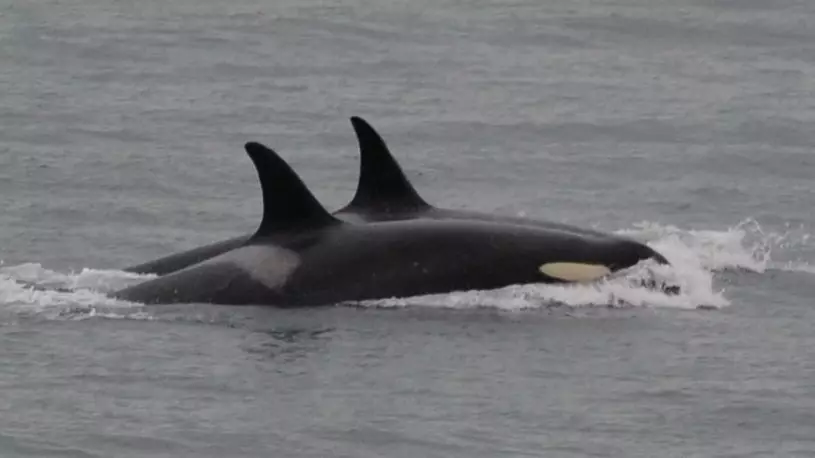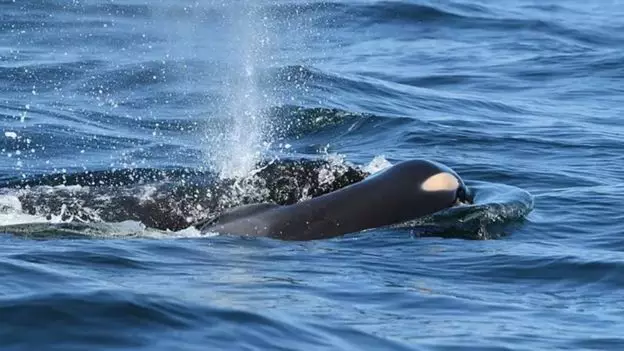
The grieving orca that has been carrying her dead calf around on her forehead for over two weeks has finally let go of the body.
The mother - who is known as 'J35' or 'Tahlequah' - had been carrying her baby in the Hari Straight off of the Washington coast for a total of 17 days, having swum 1,000 miles.

Thankfully, 20-year-old J35 has now been seen looking 'vigorous and healthy' following her ordeal.
Advert
"J35 frolicked past my window today with other J pod whales, and she looks vigorous and healthy," Ken Balcomb, founding director of the Center for Whale Research, told The Seattle Times.
"The ordeal of her carrying a dead calf for at least 17 days and 1,000 miles is now over, thank goodness."
Balcomb explained that J35 has also lost two other offspring since she gave birth to a male calf in 2010, and that losing her last calf may have been 'emotionally hard on her'.
"She is alive and well and at least over that part of her grief. Today was the first day that I for sure saw her," he added.
Advert
"It is no longer there."
Balcomb said that she's 'been eating', and that this is a sign that she's healthy and doing well. What's more, she showed no sign of 'peanut head' or malnutrition, despite the difficult and lengthy grieving period.
Killer whales have been previously known to carry around the bodies of their dead offspring for up to a week.
Advert
However, researchers say that the death of J35's baby highlights the big issue that killer whales that rely on the Salish Sea are facing.
The Center for Whale Research has said that it's been three years since a killer whale living in the area has given birth to a baby that has survived. Worryingly, in the past two decades, 75 percent of all calves born in the area have not survived infancy.
Balcomb added: "The cause is lack of sufficient food resources in their foraging area.
"There's not enough food, and that's due to environmental reasons."
Advert
In nature, the killer whales eat salmon, which, according to Balcomb also a dwindling population due to 'human practices' - such as over-harvesting.
However, he also adds that there are 'man-made solutions to this man-made problem'.
"It's time to heed environmental protections and rebuild essential ecosystems...My advocacy is to restore some of these natural river systems to facilitate wild salmon populations again," Balcomb told the news outlet.
"If the rivers recover, the salmon recover, and then the whales will hopefully recover. We can fix this."
Featured Image Credit: Center for Whale ResearchTopics: World News, News, Whales, Animals